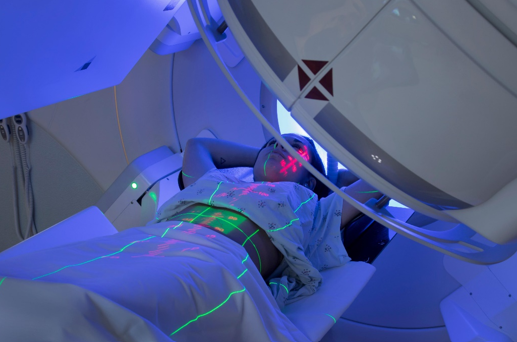THERACAN

Novel radiotheranostic systems for precision cancer medicine: THERACAN
Prosjektleder: Inigo Martinez-Zubiaurre
Verstinstitutt: Institutt for klinisk medisin, Det helsevitenskapelige fakultetet
Finansiering fra TMF UiT-satsing: 10,1 MNOK
Periode: 2026 – 2030
TMFs UiT-satsing
Targeted radiotheranostics (TRT) is a dynamic and rapidly advancing field in cancer treatment that combines the diagnostic power of molecular imaging (primarily by PET or SPECT) with the therapeutic capabilities of targeted radionuclide therapy. This innovative approach enables precise targeting and treatment of both localized and disseminated tumors while minimizing damage to healthy tissues.
TRT utilizes radioactive isotopes, or radionuclides, which emit radiation suitable for both imaging and/or therapy. These radionuclides can be attached to various of molecules (binders) such as antibodies, peptides, or small molecules, enabling them to specifically target cancer cells or other components of the tumor microenvironment (TME) including endothelial cells, fibroblasts or inflammatory cells. The dual functionality of radiotheranostics – using the same compound for diagnosis and treatment – embodies the essence of precision medicine, ensuring that the therapy is delivered directly to the intended target. When administered systemically, TRTs can effectively treat metastatic disease.
Despite its promising potential, the clinical application of TRT faces several challenges. These include the development of more specific tumor-targeting radiopharmaceuticals, selecting appropriate radionuclides that maximize cancer cell eradication while minimizing effects on healthy tissue (thereby increasing the therapeutic index), and tailoring treatments to individual patients for personalized care. Overall, a deeper understanding of the radiobiological effects of radionuclides is essential for the successful integration of TRT as a viable therapeutic option.
The long-term goal of this project is to exploit the full potential of TRT as a therapeutic alternative for patients with refractory or advanced-stage cancer. Our research will focus on enhancing tumor targeting and retention of radiopharmaceuticals, personalizing TRT protocols based on individual patient characteristics, tumor biology, and molecular profiles, and improved dosimetry procedures. Additionally, we aim to explore the synergetic potential of combining TRT with other treatment modalities, such as immunotherapy or external beam radiotherapy, to
optimize cancer care.

